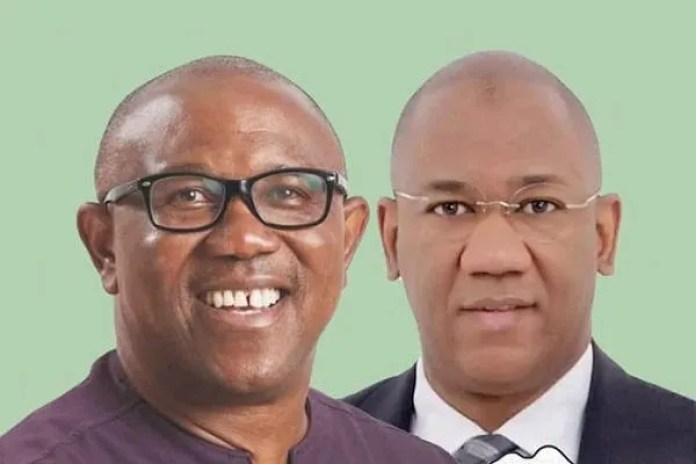By Henry Omoregie
Nigerians will go to the polls in February 2023 to elect new executives and hundreds of representatives.
For a nation grappling with unprecedented levels of insecurity, stagnating economic development, and lowered expectations from the ruling class due to the government’s ineffectiveness in tackling the myriads of surmountable bottlenecks clogging the progress of Africa’s most populated country, voting in a fresh set of leadership has become an assignment for most eligible voters.
Make no mistake about it – the 2023 polls will not be business as usual. People are now more aware of the powers of their permanent voter’s cards and have decided to exercise their electoral franchises on E-day.
Lots of reasons are being adduced to the new frenzy to mass behind the Peter Obi and Yusuf Datti Baba-Ahmed campaign train. Chief among these is the fact that Nigerians do not want to reward the chief actors in the election and reelection of the current APC federal government in 2015 and 2019. Many have been lamenting their choices and have put the blames on the doorsteps of Asiwaju Bola Ahmed Tinubu and Abubakar Atiku. The latter spent money time and resources to ensure the government of Dr. Goodluck Jonathan was disturbed, maligned, lied against, and rigged out in 2015 using all sorts of underhand tactics (or so they think).

Another group believes to ensure equity, justice, and peace in a psychologically fractured polity, it is the turn of the southeast geopolitical zone to be saddled with the task of leading Nigeria. The likes of the pan-Yoruba cultural think tank – Afenifere – are among those who believe in the sense of justice to assist a presidential candidate of southeast extraction to mount the saddle of national leadership. They have vehemently reiterated that in various fora and have massive support amongst right-thinking Nigerians.
However, many believe the presidency should go to those who can garner enough votes from Nigerians no matter what geopolitical zone he or she is representing. Many are hoping to continue in the status quo of stunted developmental strides as long as their nests are constantly feathered with the goodies and appurtenances of being part of the government. Clientelism, nepotism, and favouritism as attributes of prebendalism are some of the greatest impediments to national development. These sets of Nigerians do not care a hoot about the growth and development of the larger society and are prepared to pull down any attempt to upturn their apple cart.
Many cannot travel to their hometowns in peace due to unmotorable and insecure highways. They can barely eke out a decent livelihood from their dwindling resources as the days wear on. Their only hope is on trying out the Peter Obi and Yusuf Datti Baba-Ahmed tickets.
Their campaign trains are 99 percent organic and devoid of any significant reports of inducements to attend rallies.
ObiDatti rallies have not been rowdy to the extent of people fighting to get paid or people being ferried from state to state to populate campaign grounds.
The number of newly registered voters has been encouraging. Most of them according to the Independent Electoral Commission (INEC) are youths. It is a notorious fact that youths are the most disillusioned of the Nigerian electorate. They are still sore from the #EndSars debacle and have resolved to punish those who they perceived as the perpetrators of the extrajudicial killings during the Lekki tollgate protests in 2020.
The older voters are not excluded from the newfound frenzy about the ObiDatti ticket. Many are determined to help in voting in a fresh duo into the presidency.
People are poised to make their votes count especially with the opportunity provided by INEC BiVAS which has significantly reduced incidences of electoral malpractice during the Anambra, Ekiti, and Osun elections.
The 2023 elections will be a watershed in African political history. It will decide which path Nigeria takes in avoiding political and economic catastrophes or attempting to re-engineer Nigeria for a national reawakening and political and economic revitalization.
Henry Omoregie writes from Edo State


